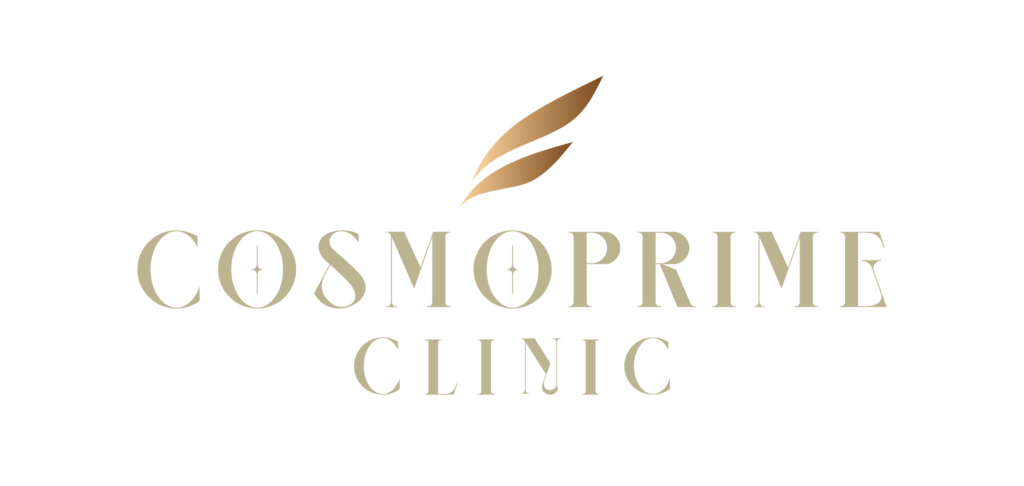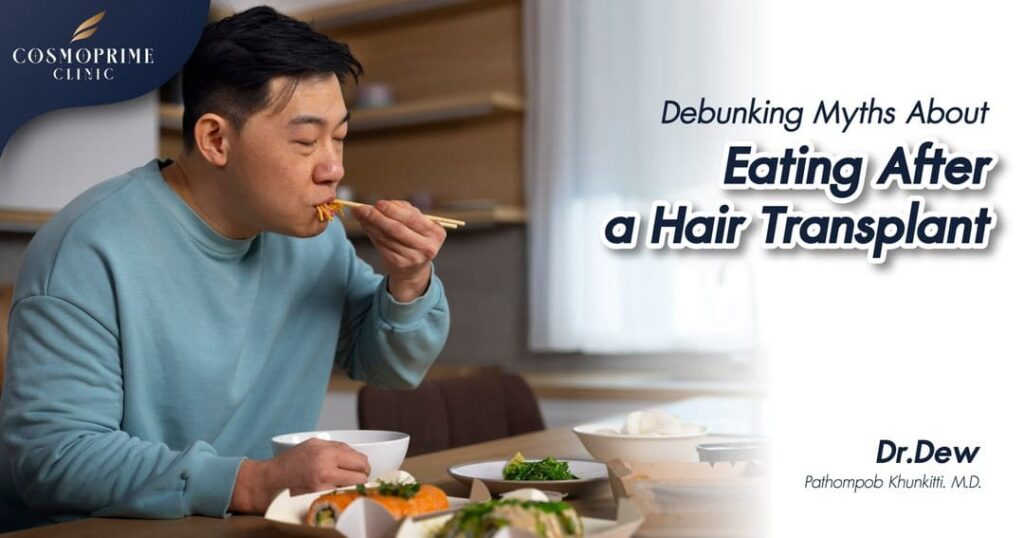Debunking Myths About Eating After a Hair Transplant
In Thai culture, the belief in avoiding certain foods—or “taboo foods”—after surgery has been passed down through generations. Many claim these foods can slow down healing, cause scarring, or lead to complications. However, scientific evidence often contradicts these age-old beliefs.
Let’s break down the facts versus myths about what you can and cannot eat after a hair transplant.
Eating Eggs Causes Keloid Scars
✅ The Truth: Eggs do not cause keloid scars. In fact, eggs are beneficial for post-surgical recovery.
Eggs are rich in:
- High-quality protein – essential for tissue repair and wound healing.
- Vitamins and minerals – including vitamin A, D, and B12, which support the immune system and recovery.
👉 Keloids (raised scars) are primarily caused by genetics, not by consuming protein-rich foods. Including eggs in your diet can actually speed up healing and reduce the risk of complications.
Seafood Delays Wound Healing
✅ The Truth: Seafood is safe to consume after a hair transplant—as long as you don’t have an allergy.
Seafood provides:
- Omega-3 fatty acids – reduce inflammation and promote faster healing.
- Zinc – helps with cell regeneration and immune support.
⚠️ Caution: Ensure seafood is cooked thoroughly to avoid bacterial contamination. Avoid raw seafood during the initial healing phase to minimize the risk of infection.
Bamboo Shoots Are Harmful After Surgery
✅ The Truth: Bamboo shoots are safe to eat after a hair transplant when prepared properly.
They are a great source of:
- Fiber – aids digestion and prevents constipation caused by post-surgery inactivity.
- Vitamins and antioxidants – support cell repair and immune function.
⚠️ Caution: Avoid raw or fermented bamboo shoots due to potential toxins and bacterial risks. Stick to cooked, clean preparations for optimal safety.
What to Eat After a Hair Transplant for Faster Recovery
A balanced, nutrient-rich diet promotes faster healing and healthy hair growth. Recommended foods include:
✅ Protein-Rich Foods – Eggs, lean meats, fish, tofu.
✅ Fruits & Vegetables – Leafy greens, berries, citrus fruits.
✅ Whole Grains – Brown rice, quinoa, whole wheat bread.
✅ Healthy Fats – Avocado, olive oil, nuts.
✅ Hydration – Drink plenty of water to support healing and flush toxins.
Final Thoughts
Forget the old myths—the right diet after a hair transplant can significantly improve your healing process. Focus on nutritious, well-prepared foods while avoiding anything undercooked or unhygienic.



